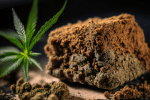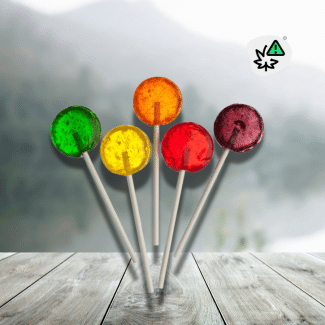
The potential of CBD compared to classic antidepressants
Depression is a major mental disorder affecting millions of people worldwide. As this public health problem grows, medical research is exploring various substances to alleviate its symptoms. Among these substances, antidepressants , such as selective serotonin reuptake inhibitors (SSRIs), serotonin norepinephrine reuptake inhibitors (SNRIs), and tricyclic antidepressants (TCAs), occupy a prominent place. However, cannabidiol (CBD), a non-psychoactive extract of cannabis, is attracting more and more interest for its potential therapeutic virtues. This article examines the potential of CBD in comparison to conventional antidepressants.
Summary
- The action of classic antidepressants
- The properties of CBD as an antidepressant
- The benefits of CBD on side effects and tolerance
- Where is the research on CBD and depression?
- Tentative conclusion: CBD as a complement or alternative to antidepressants
The action of classic antidepressants
Antidepressants work primarily by modulating the brain's chemical response to neurotransmitters like serotonin and norepinephrine, which are involved in regulating mood. Depending on their mechanism of action, there are several classes of antidepressants:
- SSRIs (Selective Serotonin Reuptake Inhibitors) : These medications, such as fluoxetine, increase the availability of serotonin by preventing its reuptake by neurons. They are often prescribed as first-line treatment due to their effectiveness and relatively mild side effect profile.
- SNRIs (Serotonin and Noradrenaline Reuptake Inhibitors) : Drugs like venlafaxine act on these two neurotransmitters with a different mechanism of action than SSRIs.
- TCAs ( Tricyclic Antidepressants ) : Among the first medications used to treat depression, TCAs like amitriptyline have shown notable effectiveness but are often associated with significant side effects, including heart problems and potentially dangerous drug interactions.
Although antidepressants can relieve symptoms in some people, they are not without their drawbacks. Side effects, duration of action (several weeks), and ineffectiveness in some patients are major concerns.
The properties of CBD as an antidepressant
Recent studies highlight the potential of CBD as an alternative to traditional antidepressant treatments. CBD, a non-psychoactive component of cannabis, is known for its beneficial effects on stress, anxiety and various neurological disorders. Key properties of CBD that may contribute to its antidepressant potential include:
- Modulation of Serotonin Levels : CBD influences serotonin in a similar way to SSRIs.
- Neuroprotection and neurogenesis : CBD improves neuronal function and promotes the creation of new brain cells.
- Reduced inflammation and oxidative stress : These factors are often linked to depression.
- Anxiolysis : CBD helps reduce anxiety, often associated with depression.
A 2018 study showed that CBD could be as effective as the antidepressants imipramine and fluoxetine in rodents, with a rapid effect on the serotonergic system. Other research indicates that CBD may work more quickly than traditional medications, reducing the time it takes to see positive effects.
The benefits of CBD on side effects and tolerance
Compared to traditional antidepressants, CBD has a more favorable side effect profile. Side effects of CBD are generally mild and include drowsiness, dizziness, and dry mouth. In addition, CBD does not induce dependence or withdrawal symptoms, unlike classic antidepressants.
The potential for drug interactions with CBD is also less, although some studies show that CBD can strengthen or weaken the action of certain medications. It is therefore essential to consult a healthcare professional before combining CBD with other treatments.
Where is the research on CBD and depression?
Although the results of preclinical studies are promising, it is important to note that these studies have primarily been conducted in animals. Controlled clinical trials on large numbers of patients are needed to definitively confirm the effectiveness and safety of CBD as an alternative to traditional antidepressant medications.
However, a growing number of people with depression are exploring the therapeutic benefits of CBD for themselves, sharing their experiences on forums and social media, which is helping to change attitudes and stimulate research.
CBD as a complement or alternative to antidepressants
Current evidence suggests that CBD may offer an innovative approach to treating depression, with some advantages over conventional antidepressant medications. However, in the absence of robust clinical studies, it is difficult to draw definitive conclusions about the effectiveness and safety of CBD for all patients with depression.
From this perspective, it may be interesting for some patients to consider CBD as a complement or alternative to existing antidepressant treatments, after consultation with a competent health professional. CBD could represent a natural and gentler solution for those who have not found the relief they hoped for with conventional treatments or who wish to explore different therapeutic options.
By exploring these various facets of CBD and its potential effects on depression, it is possible to better understand the opportunities and limitations of this promising substance.
















